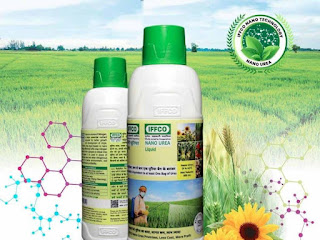Best Ways to Use Nano Urea in Modern Agriculture
Plants need the right care, nutrition, and environment to reach optimum growth. Nitrogen, phosphorus, and potassium are the primary nutrients required for various cell functions in any plant. Fertilizers are used by farmers to supplement nutrients to plants and ensure overall plant development. Urea fertilizer is one of the best fertilizers on the Indian market.
Urea fertilizer comes with high nitrogen content and is widely used on farmlands as fertilizer as well as a cattle feed supplement. Urea's main purpose is to provide a high quantity of nitrogen to the crops.
Characteristics of Urea Fertilizers
Urea fertilizers adapt to different soil types. So, it can easily be applied to bare soil along with herbicides and pesticides. It is important to take the necessary precautions during urea application to ensure no or minimal loss of nitrogen. This is because hydrolysis of ammonium carbonate leads to nitrogen loss when the fertilizer is applied to the soil. To avoid this, urea breaks down in the soil. Other than this, urea is converted into formaldehyde, which reduces the release of ammonia to match the pace of plant growth.
Advantages of Using Urea in Plants
Urea has a huge role in plant growth as it helps in the photosynthesis process.
This fertilizer is responsible for the green, leafy appearance of the plant.
The effectiveness of urea is high in soil with added moisture. The gaseous ammonia reacts with moisture to act quickly on the plant.
It can be mixed with potassium and phosphorus to make a well-balanced fertilizer.
It improves soil quality.
It also improves the quality of crop yield.
Nano Urea by IFFCO Bazar
IFFCO Nano Urea is an agricultural input that serves as a fertilizer and plant growth promoter. It is manufactured using nanotechnology and is the best option for sustainable farming. It is way ahead of other urea fertilizers available on the market, as it imparts 80% more nitrogen to plants. This nano fertilizers also helps reduce environmental pollution by restricting the loss of nutrients through leaching and wash-off.
Farmers are using this fertilizer to improve crop yield and save money as it provides more nutrients to the plants.




Comments
Post a Comment